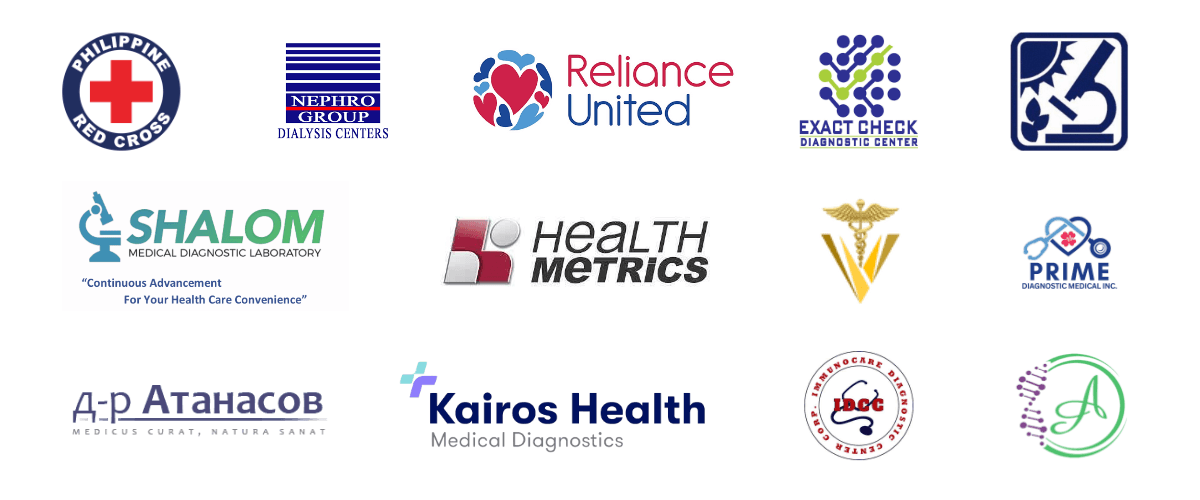
Five Lessons Laboratories Can Take Away from the Pandemic
Originally Published on: 24 September 2021
Philippine hospitals continue to grapple with the ongoing pandemic with most healthcare facilities reaching close to full capacity.
In August last year, 60 medical associations sounded the alarm on the overwhelmed healthcare system. The pandemic highlighted and magnified significant gaps and flaws in many hospitals, laboratories, and other healthcare facilities even before COVID-19.
The lack of protective personal equipment (PPE) for healthcare workers and laboratories using outdated technologies largely contributed to the rapid transmission of the virus in the country, now at over 2 million cases and more than 30,000 deaths.
While the pandemic has been a nightmare for the whole clinical laboratory and diagnostics industry, there are key lessons and takeaways laboratories can glean from these challenges as they work their way through recovery.
1. Digital Forms Are A Must
Filling out forms is a run-of-the-mill but necessary process that laboratories cannot avoid. This manual task requires physical contact with patients, adding risk for both patients and lab personnel.
Many laboratories are addressing this issue by digitizing their processes to ensure social distancing at all times and reduce patients' exposure to the virus. Another reason is to improve the speed and accuracy of data collection, thereby significantly reducing errors from manually entering data.
Mobile-first forms also improve convenience for patients, thus enhancing their overall experience with labs as well.
2. Adoption of Cloud and IoT
COVID-19 accelerated digital transformation, particularly the adoption of cloud and IoT (Internet of Things) technologies. Cloud computing adoption across the entire healthcare market is expected to increase by up to 17.9% by 2025.
IoT adoption by hospitals, labs, and other healthcare facilities has gained steam, as well. The global healthcare market invested $71.84 billion in IoT technology in 2020. That figure is expected to increase to $89.07 billion by 2021.
These technologies allowed various industries to improve internal and external processes ranging from data management and communication to collaboration and compliance requirements. As such, there is a strong indication that cloud computing and IoT can become the core of digital transformation in the healthcare sector in the near future.
3. The Increasing Importance of POC
The deployment of point-of-care (POC) testing in the Ninoy Aquino International Airport (NAIA) expedited the processes, including decision-making and administration of treatments. As services are brought closer to patients, the need for physical visits and unnecessary exposures and risks are eliminated.
These benefits, especially in light of the COVID-19 response, have grabbed hold of the stakeholders' attention. Thus, it is very likely for governments, health departments, and the entire healthcare industry to make POC testing a staple service. More than this, the potential applications of POC testing, even in non-COVID situations, are vast and promising.
4. Evolving Industry Standards and Compliance Regulations
Given the scale-up digital transformation initiatives amid the pandemic, the adoption of cloud computing, IoT, automation, and data security has improved by and large the capabilities and capacities of laboratories.
These positive outcomes - faster processes, increased transparency, and reduced costs - have gained the interests of industry leaders and healthcare consumers alike. With digital becoming the new normal, laboratories must be flexible in adapting to new industry standards and faithfully complying with government regulations. This new environment makes agility a preferred characteristic for laboratories in order to remain competitive.
5. The Need for Resilient, Future-Proof Labs
Perhaps the greatest lesson from the COVID-19 pandemic is the importance of preparation for the worst-case scenario. The COVID-19 crisis caught everyone off-guard, straining countries' entire healthcare networks.
Moving forward, healthcare systems need to be resilient and future-ready. Laboratories have to be equipped with the manpower, the expertise, and most importantly, the technology should another healthcare crisis of a similar magnitude occur in the future.
Dashlabs.ai: A Step Towards The Future of Labs with EMR and LIS
Dashlabs.ai provides small and mid-sized laboratories a comprehensive, end-to-end laboratory information software (LIS) that automates, streamlines, and manages all crucial processes and tasks. Dashlabs.ai digitizes patient-facing interactions, such as registration, scheduling, communication, updates, and handling Electronic Medical Records (EMR) through mobile-native applications.
Secure and fast access to information allows for seamless sharing of data and fuels collaboration and coordination among multiple lab professionals, teams, and departments. With Dashlabs.ai, laboratories and diagnostic centers can be future-ready and more than able to face the new normal.
Trusted by many medical organizations
processing over 10M+ patients
Dashlabs.ai's cloud-based LIS powers healthcare organizations such as diagnostic laboratories, medical centers, veterinary clinics, dialysis centers, hospitals, and corporate healthcare providers that conduct Annual Physical Exams (APE). Dashlabs.ai ensures seamless data management, patient processing, and reporting to improve overall workflow efficiency.

Create an account and start processing patients in minutes.
Start now and work faster

29F Summit One Tower
530 Shaw Bvld.
Mandaluyong City
Philippines 1550
+63 945 463 6137
3790 El Camino Real
Unit #508
Palo Alto, California
United States 94306
+1 (650) 662-6008
Privacy PolicyTerms of Service
© Copyright 2025 Dashboard Labs Corporation
